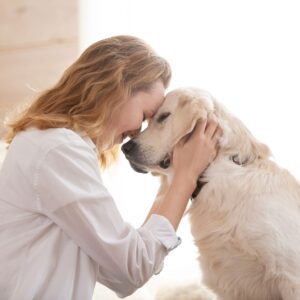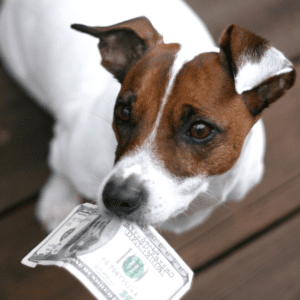Shaking, shivering, and trembling is exhibited in dogs as well as humans, and, like in humans, there could be a number of reasons. Some are obvious and harmless, others may be a sign of something that needs medical attention. It’s good practice as a dog owner to arm yourself with the knowledge of what your dog’s body language is telling you, so here are some of the common reasons your dog might be shaking.
- Thermoregulation – warming up!
Shivering is a very effective way to increase body heat, and this is something we as humans share with our pooches. If your dog has just been for a swim in a lake in cooler temperatures and has begun to shake, the chances are they are simply warming themselves back up and is nothing to worry about. (It’s always good to have a towel handy to dry them off to help things along though!)
- Emotional response
Trembling as an emotional response can either be a good or bad thing, so it’s important to understand your dog and the context of the situation your find yourselves in. Some dogs, particularly small dogs, although we don’t know exactly why, seem to tremble with excitement sometimes. Mainly though, trembling as a response to surroundings is either from anxiety or fear. Triggers, such as loud noises, or having strangers in the house, for example, can spike your dog’s adrenaline which can cause uncontrollable muscle twitching. If this happens, try to soothe them using calming actions, such as gentle stroking and spoken reassurance using a quiet voice. If the shaking appears to be a response to more chronic anxiety, speak to your vet about medication and supplements which may help them.
- Pain
Dogs can tremble in pain from illness, infection or muscle and bone aches. Older dogs may shake a little when suffering from age-related arthritic pain, whereas if you identify shaking in a younger dog, it may be a sign of an injury or an illness. In any of these cases, it’s best to speak to your vet to eliminate anything sinister and for them to help with their pain management.
- Low blood sugar
That’s right, like humans, dogs can suffer from low blood sugar levels and can exhibit signs of trembling when their muscles are starved of glucose. This is one to watch out for if your dog has been diagnosed with diabetes, or you suspect your dog might be diabetic. It can also happen if your dog has ingested xylitol, which is an artificial sugar found in lots of human foods (chewing gum being a very common one) which causes a rapid decrease in blood sugar which can be fatal to dogs. If you think your dog may have eaten something it shouldn’t have and it starts to shake, call your vet immediately for emergency care.
- Toxins
There are many things we have around our homes that are harmless to us, but can be really poisonous to our dogs. Shaking is one of the earliest indicators that your dog has ingested something toxic, so make sure you have your vet’s number in your contacts in case of emergencies like this. For a list of common household items you didn’t know were toxic to your dog, check out our blog on this very topic.
- Muscle Weakness
Again, this is more prevalent in older dogs, but younger dogs can also suffer from atrophy if they have a chronic disease, so it’s always best to check with your vet to rule out long term problems if you find your dog appears to shake for no reason.
- Underlying health conditions
In rare and unfortunate cases, trembling, shivering or shaking could be a sign that your dog is suffering from a more serious health condition. If the trembling coincides with other symptoms such as lack of appetite, vomiting, confusion or limping, this could be an indicator that your dog may have a seizure disorder such as epilepsy, and this must be treated very quickly by your vet.
This list is by no means exhaustive and should only be used as an indicator to dog owners to watch out for signs that their dog may need medical attention. At Wooflinks, we believe your vet is always the best bet for your pet, and risks should never be taken when it comes to the health of our best pals. There could be many other reasons why your dog is trembling, shaking or shivering so PLEASE never hesitate to get in touch with your vet if you have any concerns.









Add a comment